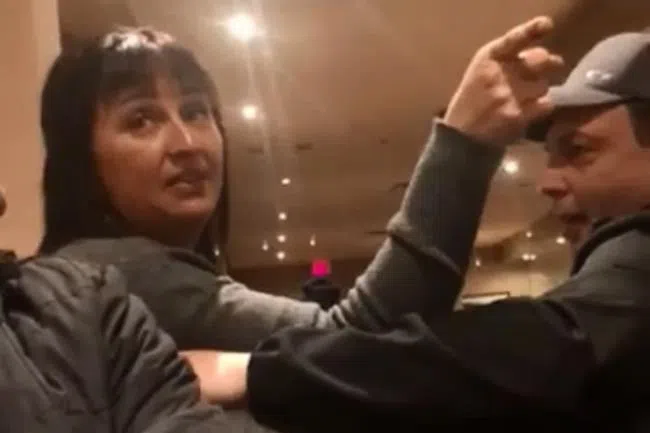
No armchair quarterbacks: Lethbridge police chief wants context of racist video
LETHBRIDGE, Alta. — A southern Alberta police chief is urging people not to leap to conclusions about how officers handled a racist confrontation at a local Denny’s last month.
“It’s very easy to armchair quarterback three weeks later when we have the videos out there and people wading in,” Lethbridge police Chief Rob Davis said Thursday. “But based on what we have, I’m confident that our officers acted appropriately.”
Monir Omerzai and three friends were at the restaurant in April waiting for their food when a woman in the next booth got into a heated exchange with them. Omerzai, who came to Canada from Afghanistan 13 years ago, filmed the woman yelling the group to go back to their country.
He posted the video on Facebook on Tuesday and it has since been viewed more than a million times.
